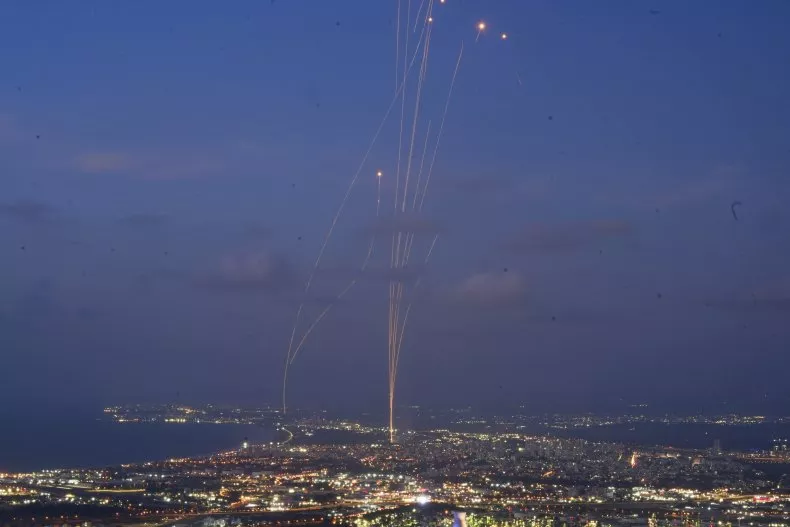Lebanon’s Hezbollah movement announced on Wednesday that its fighters had fired a ballistic missile targeting the Mossad intelligence agency headquarters near Tel Aviv.
According to a statement released by Hezbollah, the intended target was the intelligence agency’s headquarters, which the group said was responsible for last week’s pager and radio device attacks and the assassinations of senior Hezbollah leaders.
“The Islamic Resistance launched a ‘Qader 1’ ballistic missile at 6:30am (03:30 GMT) on Wednesday, 25-9-2024, targeting the Mossad headquarters in the outskirts of Tel Aviv,” the statement read.
“The headquarters are responsible for the assassination of leaders and the explosion of pagers and wireless devices.”
Israel’s military confirmed that its air defense systems had intercepted the rocket as it was detected crossing from Lebanon, triggering warning sirens in Tel Aviv and other areas of central Israel.
The Israeli military said that the rocket was intercepted by the Iron Dome defense system, and that no injuries or damage were reported.
Hezbollah’s statement came after a series of attacks and assassinations targeting the group’s leaders and members in recent weeks. The group has accused Israel of being behind the attacks, and has vowed to retaliate.
The firing of the ballistic missile is seen as a significant escalation of the conflict between Hezbollah and Israel, and has raised concerns of a wider conflict in the region.
“This is a very serious development,” said Hassan, a Lebanese analyst. “Hezbollah is sending a clear message to Israel that it will not tolerate these attacks and assassinations. The question is, how will Israel respond?”
The Israeli military has been on high alert in recent days, with troops and equipment being deployed to the border with Lebanon.
“We are prepared for any scenario,” said an Israeli military spokesperson. “We will not tolerate any attacks on our territory or our citizens. We will respond with force to any aggression.”
The international community has been calling for calm and restraint, with the United Nations and other organizations urging both sides to avoid further escalation.
“We are deeply concerned about the situation,” said a UN spokesperson. “We urge both sides to exercise restraint and to avoid any actions that could lead to further escalation.”
The conflict between Hezbollah and Israel has been ongoing for years, with periods of relative calm punctuated by outbreaks of violence. However, the current escalation is seen as particularly significant, given the scale of the attacks and the number of civilians caught in the crossfire.
“This is a very volatile situation,” said Dr. Ahmad Tibi, a Palestinian member of the Israeli Knesset. “We need to find a way to stop the fighting and negotiate a peaceful resolution. The alternative is too terrible to contemplate.”
What’s Next?
As the conflict continues, there are fears that it could spread to other parts of the region. The Israeli military has been conducting operations in Gaza, and there have been reports of clashes between Israeli forces and Palestinian militants.








